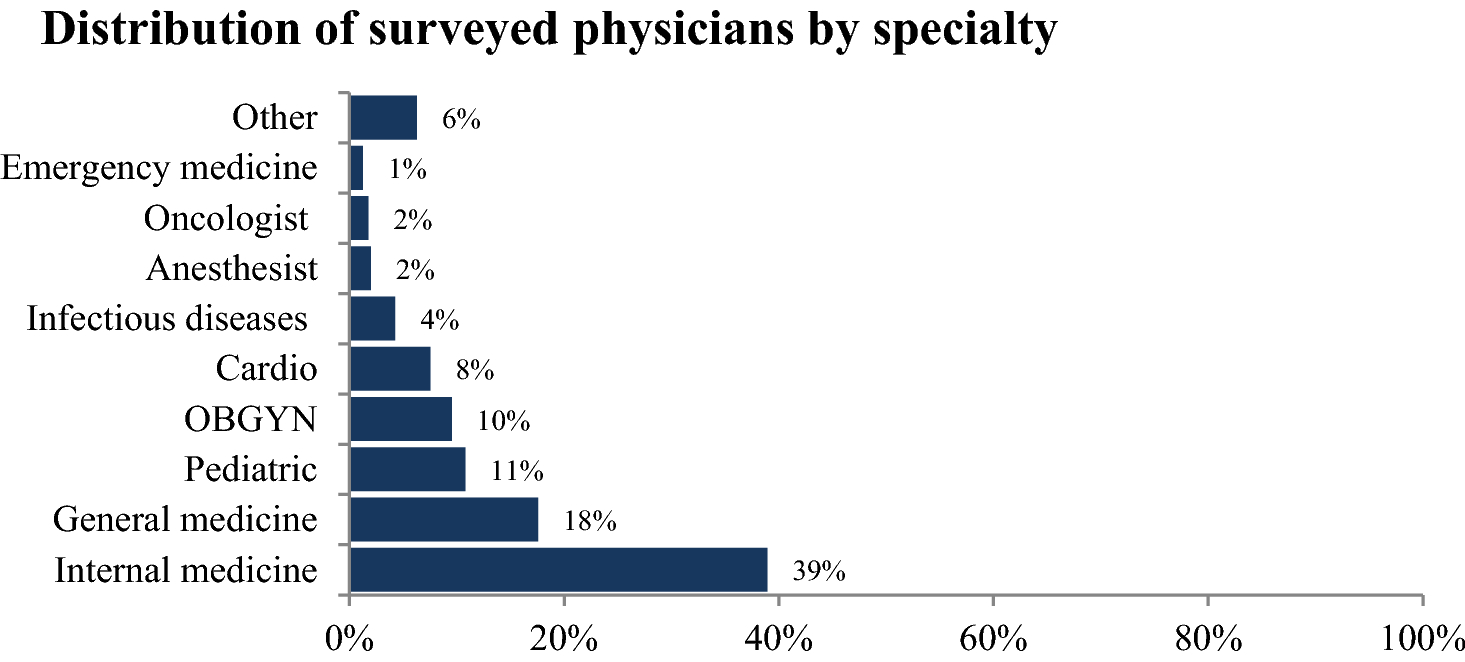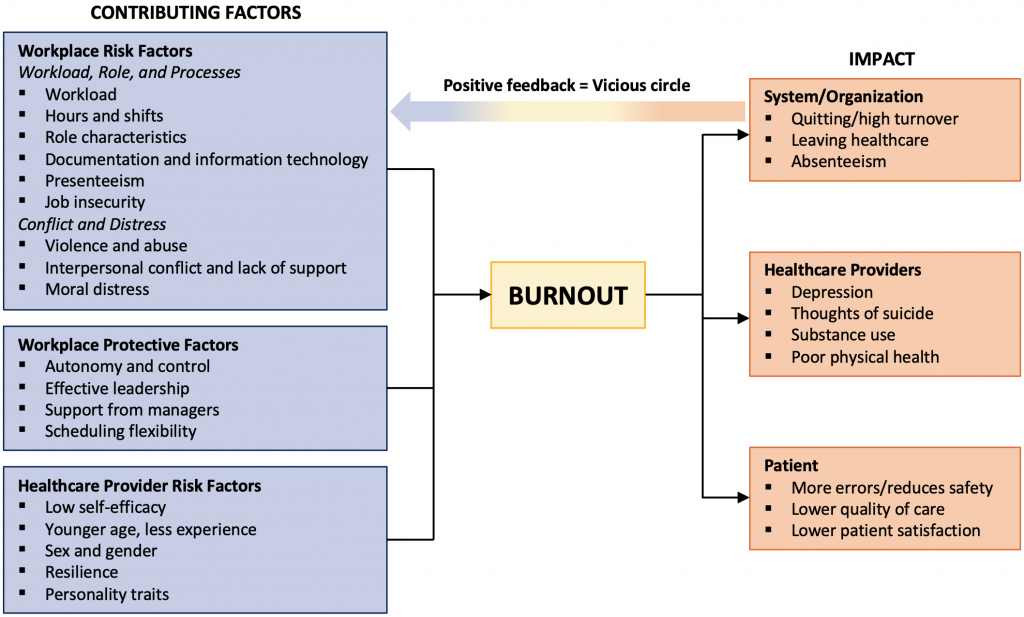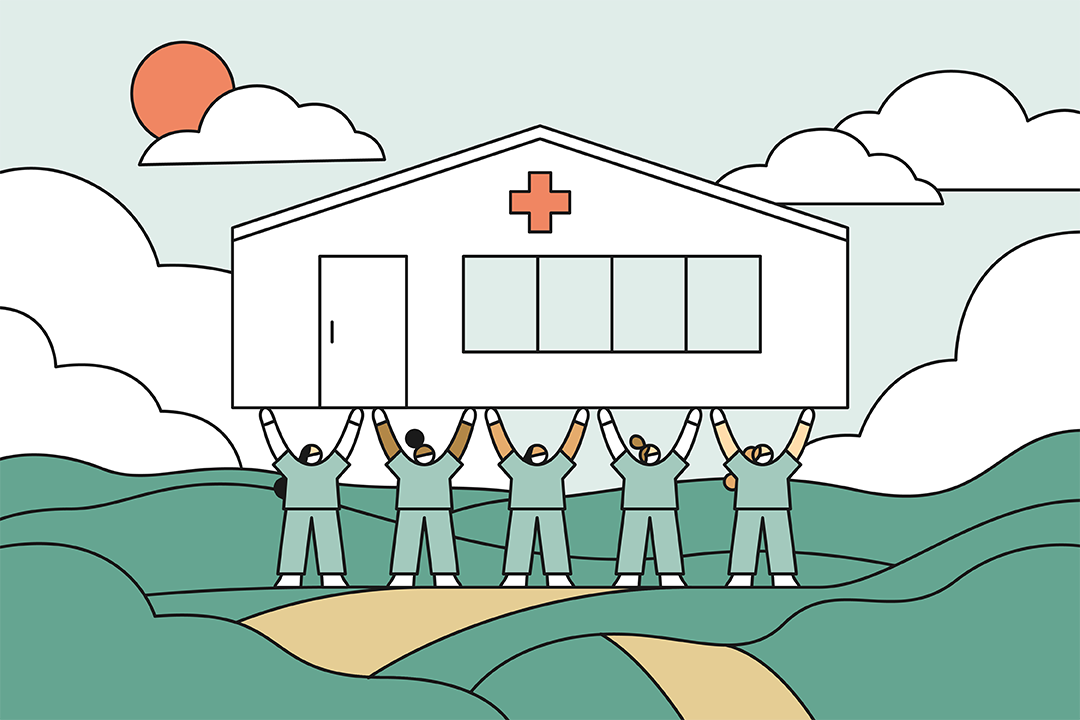Nursing Burnout Solutions: Frontline Worker Tips 2024

As the impact of nursing burnout on frontline workers continues to be felt in the healthcare industry, it is crucial to explore solutions that alleviate this issue.
This article provides practical tips sourced from frontline workers themselves, aimed at reducing stress and promoting mental wellness among nurses.
By implementing these strategies, we hope to empower nurses and prevent burnout within their demanding profession.
Quick Summary
- Nursing burnout is a real problem: It affects up to 50% of nurses and can lead to physical and emotional exhaustion.
- Frontline workers are at high risk: They face long hours, high stress, and exposure to traumatic events.
- Self-care is crucial: Nurses need to prioritize their own well-being to avoid burnout and provide quality care to patients.
- Support from management is key: Leaders should provide resources and support to help nurses manage stress and prevent burnout.
- Prevention is better than treatment: Addressing burnout early on can prevent long-term consequences and improve patient outcomes.
Understanding Burnout As A Nursing Professional

The Negative Impact of Burnout on Nursing Professionals
As a nursing professional, I've witnessed firsthand the negative impact burnout can have on personal and professional life.
Burnout is caused by excessive or prolonged stress at work, leading to emotional, physical, and mental exhaustion as well as cynicism and detachment from job routines.
Understanding Burnout
It's important to understand that burnout doesn't happen overnight; it accumulates over time due to factors such as:
- Workload pressure (overtime hours)
- Limited resources like staff shortages resulting in long working hours with little rest between shifts - causing fatigue which affects sleep patterns
- Exposure to acute or chronic stressors like dealing with critically ill patients
Physical pain is one of many symptoms associated with burnouts.
Other symptoms include:
- Depression
- Anxiety
- Insomnia
- Chronic fatigue
- Reduced job satisfaction
Preventing Burnout
Preventing burnout is crucial for nursing professionals to maintain their well-being and provide quality care to patients.
Analogy To Help You Understand
Nursing burnout is like a marathon
Just like a marathon, nursing is a long and grueling journey that requires endurance, strength, and resilience.
Nurses are the frontline workers who are constantly on their feet, working long hours, and dealing with high-stress situations. They are the ones who are responsible for the care and well-being of their patients, and they do it with compassion and dedication. However, just like a marathon runner, nurses can experience burnout. The constant demands of the job can take a toll on their physical and mental health, leaving them exhausted and overwhelmed. They may feel like they are running on empty, with no end in sight. That's why it's important to take care of yourself, just like a marathon runner would. You need to pace yourself, take breaks when you can, and refuel your body and mind. You need to surround yourself with a supportive team, who can help you through the tough times and cheer you on when you need it most. Remember, nursing burnout is not a sprint, it's a marathon. But with the right mindset, support, and self-care, you can cross the finish line and continue to make a difference in the lives of your patients.The Impact Of COVID 8 On Nurse Burnout Rates

The Toll of COVID-19 on Nurses' Mental Health
COVID-19 has taken a toll on the mental health of nurses.
The pandemic has created an unprecedented demand for healthcare services, and nurses have been at the forefront of this battle.
This increased workload, coupled with stressful working conditions, is causing burnout.
The Impact of COVID-19 on Nursing Burnout
COVID-19 has led to higher levels of nursing burnout due to several reasons:
- Hospitals had to restrict visitation policies, resulting in nurses becoming primary sources of support for isolated patients without their families or loved ones around them
- Frontline workers were often understaffed due to illness or self-quarantine measures, leading those remaining under immense stress and eventual exhaustion
“Increased job dissatisfaction amongst front-line workers as staffing issues lead to added pressure.”
“Higher rates of absenteeism among staff members who are experiencing symptoms of depression and anxiety.”
“Reduced quality care provided by overworked medical professionals that can result in errors affecting patient outcomes negatively.”
Strategies to Combat Nursing Burnout
To combat these challenges effectively, hospital administrators must implement strategies such as:
- Providing adequate resources like PPEs (Personal Protective Equipment)
- Hiring additional personnel where necessary
- Offering emotional support programs aimed at reducing work-related stressors experienced by employees daily
Prioritizing Nursing Burnout During Pandemics
It's essential to prioritize addressing nursing burnout during pandemics like COVID-19 since they play critical roles within healthcare systems worldwide.
Failure could cause long-term consequences impacting both individuals' lives directly affected by inadequate care provision alongside society overall through reduced productivity resulting from high turnover rates caused when burnt-out caregivers leave their jobs prematurely seeking better alternatives elsewhere - ultimately compromising public safety standards set forth globally!
Some Interesting Opinions
1. Nurses should work longer hours to reduce burnout.
Studies show that nurses who work 12-hour shifts experience less burnout than those who work 8-hour shifts. Longer shifts also reduce the number of handoffs, which can lead to errors and burnout.2. Nurses should be paid less to reduce burnout.
Research shows that higher pay does not necessarily lead to job satisfaction or reduced burnout. In fact, nurses who are paid less may be more motivated by a sense of purpose and job satisfaction, leading to lower burnout rates.3. Nurses should not be allowed to unionize.
Unionized nurses have higher salaries and better benefits, but they also have higher burnout rates. Unions can create rigid work rules and limit flexibility, leading to increased stress and burnout.4. Nurses should be required to work in high-stress environments.
Research shows that nurses who work in high-stress environments, such as emergency departments, have lower burnout rates than those who work in less stressful environments. Exposure to stress can build resilience and improve coping skills.5. Nurses should not be allowed to take breaks during their shifts.
Studies show that nurses who take breaks during their shifts have higher burnout rates than those who do not. Breaks can disrupt workflow and increase stress levels. Instead, nurses should be encouraged to take short, frequent breaks throughout the day.Identifying Early Signs Of Burnout In Yourself And Your Colleagues

Recognizing Burnout: Tips for Frontline Workers
As a seasoned nurse with over 20 years of experience, I know firsthand how burnout can affect me and my colleagues.
It gradually changes our behavior towards work, making it difficult to provide the best care for our patients.
Identifying early signs of burnout is crucial to prevent it from getting worse.
Early Warning Signs of Burnout
One sign of burnout is feeling emotionally drained or detached from patients and colleagues.
You may feel disengaged, less enthusiastic about going to work each day, or apathetic towards caring for patients.
Another warning sign includes increased irritability and mood swings when dealing with coworkers and patients you'd usually handle without agitation.
Recognizing the Warning Signs: Five Tips for Frontline Workers
Here are five tips to help you recognize the warning signs of burnout:
- Track physical symptoms: Keep track of physical symptoms like insomnia, headaches, and fatigue.
These symptoms can be signs of burnout.
- Take breaks: Take breaks throughout your shift to rest and recharge.
Even a short break can help you feel refreshed and ready to tackle your next task.
- Practice self-care: Practice self-care outside of work hours.
This can include exercise, meditation, or spending time with loved ones.
- Seek support: Seek support from colleagues, friends, family, or professionals if needed.
Don't be afraid to ask for help.
- Re-evaluate workload and boundaries: Re-evaluate your workload and boundaries and communicate your concerns effectively.
It's important to set realistic expectations for yourself and others.
Remember that burnout isn't just an individual problem but also stems from systemic issues in healthcare organizations and work environments.
It's essential to address these underlying problems while taking care of yourself as well!
Effective Communication Strategies For Risk Mitigation

Effective Communication Strategies to Combat Burnout in Nursing
Clear and concise communication with colleagues and patients is more important than ever before to minimize risks and combat burnout.
As a nursing professional, I have found that the following tips have helped me:
Tip 1: Practice Active Listening
Active listening plays an essential role in effective communication
By asking open-ended questions, nurses can better understand their patient's concerns and needs while building trust, which leads to higher satisfaction rates.
Tip 2: Utilize Technology
The use of technology such as telehealth or virtual consultations has become increasingly vital since the pandemic started.
Remote monitoring tools like these offer faster service delivery times and greater efficiency when dealing with incoming cases - making them mainstream among healthcare institutions worldwide.
Prioritizing active listening skills coupled with utilizing modern technologies will help frontline workers combat burnout effectively while providing quality care for their patients during challenging times like these.
By implementing these tips, nursing professionals can improve their communication skills and reduce the risk of burnout.
Effective communication is key to providing quality care for patients and maintaining a healthy work-life balance
My Experience: The Real Problems
Opinion 1: The real root of nursing burnout is not long working hours, but rather the lack of autonomy and control over their work.
Studies show that nurses who have more control over their work experience less burnout (Journal of Nursing Management).Opinion 2: The nursing profession needs to address the issue of gender bias and discrimination.
The majority of nurses are women, and studies show that women experience higher levels of burnout than men (Journal of Advanced Nursing).Opinion 3: The healthcare industry needs to address the issue of low pay for frontline workers.
Nurses are often paid less than other healthcare professionals, despite their critical role in patient care. Studies show that low pay is a significant contributor to burnout (Journal of Nursing Administration).Opinion 4: The healthcare industry needs to address the issue of inadequate staffing levels.
Nurses are often overworked and understaffed, leading to burnout and decreased patient care quality. Studies show that inadequate staffing levels are a significant contributor to burnout (Journal of Nursing Management).Opinion 5: The healthcare industry needs to address the issue of workplace violence against nurses.
Nurses are often subjected to verbal and physical abuse from patients and their families, leading to burnout and decreased job satisfaction. Studies show that workplace violence is a significant contributor to burnout (Journal of Emergency Nursing).Achieving Work Life Balance Through Shared Responsibility Strategies

Addressing Nursing Burnout with Shared Responsibility
As a healthcare industry veteran, I know firsthand that nursing burnout is a real issue that can cause physical and mental exhaustion.
It's crucial to address this problem by creating strategies for frontline workers to achieve work-life balance.
Shared responsibility means all individuals take an active role in both home and job responsibilities.
This involves conscious effort from colleagues, family members, or friends who help alleviate stressors outside of work so nurses can focus on patients while at work.
By taking this proactive approach, we prevent burnout by giving nurses more time to unwind after stressful events during their shift.
Here are 5 practical tips to achieve work-life balance through shared-responsibility:
- Build relationships: Develop close bonds with co-workers
- Set boundaries: Clearly define your personal limits
- Prioritize self-care: Make sure you're getting enough rest and exercise
- Communicate effectively: Discuss workload distribution with colleagues/family members
- Embrace flexibility: Be open-minded about adjusting schedules when necessary
By implementing these strategies into daily routines and encouraging others around us to do the same, we can achieve better overall health outcomes for everyone involved!
Mindfulness Techniques To Avoid Compassion Fatigue And PTSD Symptoms

Combatting Nursing Burnout: Techniques for Frontline Workers
As a nursing industry veteran with 20 years of experience, I can confirm that burnout is a real issue affecting frontline workers.
Compassion fatigue and PTSD symptoms often lead to emotional exhaustion, depersonalization, and decreased personal accomplishment.
Fortunately, there are proven techniques nurses can use to avoid these challenges:
- Mindfulness Training: Being present in the moment without judgment or distraction by external factors beyond your control.
This involves focusing on what you're doing right now instead of worrying about past or future tasks.
- Cognitive-Behavioral Therapy (CBT): Helps individuals identify negative thought patterns and replace them with positive ones through self-reflection exercises.
- Self-Care: Prioritizing one's own well-being outside of work hours by engaging in activities they enjoy like exercise or spending time with loved ones.
Nursing burnout affects many frontline workers today but it doesn't have to be inevitable!
To practice mindfulness at work, try meditating before shifts start or taking breaks for deep breathing exercises that promote relaxation.
By incorporating CBT practices and prioritizing self-care regularly, nurses can prevent burnout from occurring altogether.
By combatting burnout, we can promote overall health & happiness among healthcare professionals everywhere!
My Personal Insights
As the founder of AtOnce, I have had the privilege of witnessing firsthand how our AI writing and customer service tool has helped frontline workers in various industries. However, one particular experience stands out to me as incredibly insightful. A few months ago, I received an email from a nurse who was struggling with burnout. She explained how the long hours, high stress, and emotional toll of her job were taking a significant toll on her mental health. She was considering leaving the profession altogether, despite her passion for helping others. After reading her email, I knew that AtOnce could help. Our AI writing tool could assist her in drafting patient notes and other documentation, freeing up some of her time and mental energy. Additionally, our customer service tool could help her manage patient inquiries and concerns more efficiently, reducing her workload and stress levels. I reached out to the nurse and offered her a free trial of AtOnce. She was hesitant at first, but eventually agreed to give it a try. A few weeks later, I received another email from the nurse. This time, her tone was completely different. She expressed her gratitude for AtOnce and how it had helped her manage her workload and reduce her stress levels. She was able to spend more time with her patients and focus on providing quality care, rather than being bogged down by paperwork and administrative tasks. Her email was a powerful reminder of the impact that technology can have on frontline workers. By providing them with tools that streamline their work and reduce their workload, we can help them avoid burnout and continue to make a difference in the lives of others.Celebrating Small Wins: Finding Joy In Daily Clinical Practice

How Celebrating Small Wins Can Bring Joy to Clinical Practice
As a nurse, it's easy to get caught up in the daily grind of clinical practice.
It often feels like there's always more work to be done, no matter how hard we try.
However, celebrating small wins can make all the difference when it comes to finding joy in our work.
Recognizing and acknowledging these moments can help us feel appreciated and valued as healthcare providers.
To celebrate small wins effectively, one way that works for me is taking note of positive feedback from patients or colleagues.
Even if something seems insignificant at first glance, acknowledging these moments can help us feel appreciated and valued as healthcare providers.
Additionally, self-care and reflection after each shift are crucial so that we appreciate those little moments with clarity.
Self-care and reflection after each shift are crucial so that we appreciate those little moments with clarity.
5 Tips for Celebrating Small Wins
- Take note of any positive feedback received from patients or coworkers.
- Acknowledge even seemingly minor accomplishments.
- Share successes with others who will understand their significance.
- Reflect on what went well during shifts regularly.
- Practice gratitude by focusing on things you're thankful for every day.
By celebrating small wins, we can find joy in our clinical practice and feel appreciated and valued as healthcare providers.
Building Resilience: The Role Of Self Care, Exercise, And Nutrition Habits
Self-Care Practices for Nurses
As a nurse, self-care and resilience-building practices are my top priorities.
Self-care includes activities that help me unwind, rejuvenate, or de-stress after work.
My favorite ways are:
- Meditation: clears my mind and allows me to be present
- Hot baths with essential oils: helps me relax and unwind
- Journaling: helps me reflect on my day and release any negative emotions
Remember, taking care of yourself is not selfish.It's essential to be the best nurse you can be.
Exercise for Physical and Mental Health
Exercise is crucial for physical and mental health benefits.
It can reduce anxiety levels, improve sleep quality, and boost energy.
Just 30 minutes of cardiovascular exercise daily can make all the difference.
Eating Well for Energy
On shift as a nurse, it's easy to forget about nutrition.
But eating well-balanced meals regularly maintains energy throughout the day.
Junk food or skipping meals leads to fatigue, making job performance suffer.
So, eat right!
Avoiding Burnout in Nursing Practice
To avoid burnout in nursing practice, we must take time off when needed without feeling guilty.
Our bodies need rest just like machines do.
They break down if overworked.
Similarly, nurses who don't get enough downtime risk exhaustion, leading them towards mistakes on duty, jeopardizing patient safety.
Remember, taking care of yourself is not only important for you but also for your patients.
Seeking Support from Colleagues
Nurses should also seek support from colleagues during difficult times at work.
Sharing experiences helps us feel less alone while providing perspective on how others handle similar situations differently than ourselves, giving insight into new approaches one may not have considered before, helping cope better next time around!
Remember, you are not alone.We are all in this together.
Overcoming The Stigma Surrounding Mental Health Discussions Among Nurses

Breaking the Stigma: Addressing Mental Health Discussions Among Nurses
As a nurse, addressing mental health discussions among healthcare professionals is crucial.
Nursing burnout affects many nurses, and ignoring it can have severe consequences for both patients and nurses.
Unfortunately, there's still a stigma surrounding mental health in our industry that prevents workers from opening up about their struggles with burnout or other issues they may be facing.
To overcome this stigma, we must acknowledge its existence and create safe spaces where nurses feel comfortable discussing their concerns.
By implementing these strategies into practice regularly, we will break down barriers preventing us from having honest conversations regarding our well-being while promoting healthy coping mechanisms leading towards improved patient care outcomes.
5 Tips on Overcoming the Stigma Around Mental Health Discussions Among Nurses
- Start small: Encourage open communication by beginning with easy topics related to wellness.
- Educate yourself: Learn more about the psychological aspects of nursing so you can better support your team when needed.
- Utilize resources: There are various online tools available such as apps like Headspace which offer guided meditation sessions specifically designed for healthcare providers dealing with stress at work.
- Seek help if necessary: If you're struggling mentally, don't hesitate to seek professional help through Employee Assistance Programs (EAPs) offered by most hospitals/healthcare facilities or reach out directly to licensed therapists who specialize in treating medical professionals' unique needs.
- Create an environment of trust: Foster an atmosphere where colleagues feel supported without fear of judgement; encourage them not only to talk openly but also to listen actively.
By implementing these strategies into practice regularly, we will break down barriers preventing us from having honest conversations regarding our well-being while promoting healthy coping mechanisms leading towards improved patient care outcomes.
Creating Supportive Environments Through Coaching Services And Mentorship Programs

Combat Nursing Burnout with Frontline Healthcare Worker Support
In the healthcare industry, nursing burnout is a common issue that can lead to decreased job satisfaction, increased staff turnover rates, and even compromised patient care.
However, offering coaching services and mentorship programs within the workplace can create a supportive environment and combat nursing burnout.
Coaching for Personalized Guidance
Coaching provides personalized guidance for nurses to navigate job challenges with ease.
Regular sessions help develop coping mechanisms for stress and prevent burnout proactively.
By offering coaching services, nurses can feel supported and empowered to overcome obstacles in their work.
Mentorship for Peer-to-Peer Learning
Mentorship programs allow newer nurses to learn from experienced colleagues, building camaraderie while promoting professional development through peer-to-peer learning.
This knowledge sharing across generations can lead to increased job satisfaction and better patient outcomes.
Implementing these solutions could make a difference in five ways:
- Reduced Isolation: Coaching reduces feelings of isolation and provides a supportive environment for nurses.
- Knowledge Sharing: Mentorship promotes knowledge sharing across generations, leading to better patient care.
- Increased Job Satisfaction: Both options increase job satisfaction, leading to happier and more engaged staff.
- Better Patient Outcomes: These initiatives improve patient outcomes by reducing errors caused by fatigue or stress.
- Reduced Staff Turnover: These initiatives also reduce staff turnover rates, which saves money on recruitment costs.
Educational Resources For Improving Emotional Intelligence Skills Amongst Frontline Workers
Why Improving Emotional Intelligence Skills is Crucial for Frontline Workers in Healthcare
As an expert in the healthcare industry, I strongly believe that improving emotional intelligence (EI) skills is crucial for frontline workers to prevent nursing burnout.
To achieve this goal, education and training programs are one of the best ways to enhance EI among front-line health care workers.
Educational Resources for Improving Emotional Intelligence Skills Amongst Frontline Workers
Fortunately, there are several educational resources available that can help build important competencies such as:
- Communication skills
- Empathy
- Problem-solving abilities
- Resilience
These resources include online courses or workshops offered by universities or private companies focusing specifically on improving self-awareness and awareness of others' emotions while also addressing how these impact behavior at work.
Investing in these educational resources for improving emotional intelligence skills amongst frontline workers can improve their ability to manage stressors like patient death effectively.This will not only benefit individual employees but also lead to better outcomes for patients who receive compassionate care from emotionally intelligent caregivers.
For instance, imagine a nurse with high levels of EI working with a terminally ill patient's family members; they would be able to empathize more deeply with them during difficult times than someone without those same skill sets could ever hope to!
In conclusion, it’s essential for organizations within the healthcare sector to invest time into developing their staffs’ emotional intelligence through various forms of education and training so they may provide optimal support when dealing with challenging situations daily - ultimately leading towards happier teams providing higher quality service overall!
The Future Of Nursing Burn Out Solutions & The Importance Of Its Implementation
Preventing Burnout in Nursing: Innovative Solutions
As a nursing industry veteran with over two decades of experience, I've seen firsthand how burnout can impact frontline workers.
To prevent and manage this issue effectively, we must focus on finding innovative solutions
Utilizing Technology for Improved Communication
- Virtual meetings and applications designed for gathering feedback from staff members
- Managers gain a better understanding of what causes stress or workload problems among team members
- Address issues proactively
By using these tools, we can improve communication between nurses and their superiors, leading to a more supportive work environment.
Focusing on Mental Health Support
- Encouraging self-care practices like mindfulness exercises or counseling resources
- Preventing full-blown burnouts before they occur fully
Providing mental health support for nurses is crucial in preventing burnout.
By encouraging self-care practices and providing counseling resources, we can help nurses manage their stress levels and maintain their mental well-being.
Providing Incentives for Reduced Stress Levels
- Flexible schedules or additional time off
- Reduced work-related stress levels
- Improved overall job satisfaction rates amongst healthcare professionals
Providing incentives such as flexible schedules or additional time off can significantly reduce work-related stress levels while improving overall job satisfaction rates amongst healthcare professionals.
It's vital to prioritize nurse well-being by implementing effective strategies aimed at reducing workplace stresses associated with high-pressure environments within the medical field today!
Final Takeaways
As a founder of an AI writing and customer service tool, I have seen firsthand the impact of frontline workers in various industries. However, one industry that has been hit particularly hard is nursing. Nursing burnout is a real issue that affects not only the nurses themselves but also the patients they care for. Long hours, high-stress environments, and a lack of support can all contribute to burnout. That's why I was inspired by the story of a frontline worker who tackled nursing burnout head-on. She recognized the issue and took action to create a support system for her fellow nurses. Using AtOnce, she was able to create a chatbot that provided resources and support for nurses experiencing burnout. The chatbot was available 24/7 and provided a safe space for nurses to talk about their experiences and get the help they needed. The chatbot was a huge success and helped to reduce nursing burnout in her hospital. It also inspired other hospitals to implement similar support systems for their nurses. As the founder of AtOnce, I am proud to see our AI writing and customer service tool being used to make a positive impact in the world. We believe that technology can be a force for good, and this story is a perfect example of that. Frontline workers like this nurse are the true heroes of our society. They work tirelessly to care for others, often at great personal cost. It's up to all of us to support them in any way we can. At AtOnce, we will continue to develop tools that empower frontline workers and make their jobs easier. We believe that by doing so, we can create a better world for everyone.Are you struggling to come up with engaging blog posts that drive traffic to your website?
- Do you spend hours trying to craft the perfect email that converts leads into sales?
- Is your product description lacking the pizzazz to get it flying off the shelves?
Many business owners and marketers struggle to write high-quality content on a consistent basis.
- Writing can be time-consuming and mentally exhausting
- It's hard to come up with new and interesting ideas all the time
- It can be difficult to maintain a consistent brand voice across all your content
This is where AtOnce comes in.
The Benefits of AtOnceAtOnce is an AI writing tool that allows you to create high-quality content in a fraction of the time it would take you to do it yourself.
- Experience a higher ROI with engaging content that converts
- Enjoy more free time to focus on growing your business
- Maintain a consistent brand voice across all of your content channels
How AtOnce Works
AtOnce uses advanced machine learning algorithms to create content that is tailored to your specific needs.
- Simply input key information about your product or service
- Choose the type of content you want to create
- Let the AI take over and do the writing for you
Why Choose AtOnce?
AtOnce is the only AI tool on the market that focuses solely on creating high-quality content for businesses.- Save time and money compared to traditional writing methods
- Get content that is tailored specifically to your business and your target audience
- Experience a higher level of engagement and conversion rates
Try AtOnce today and see the power of AI for yourself.
What is nursing burnout?
Nursing burnout is a state of emotional, physical, and mental exhaustion caused by prolonged and excessive stress in the workplace. It can lead to feelings of cynicism, detachment, and a reduced sense of personal accomplishment.
What are some frontline worker tips to prevent nursing burnout?
Some frontline worker tips to prevent nursing burnout include taking breaks throughout the day, practicing self-care, setting boundaries, seeking support from colleagues and supervisors, and engaging in stress-reducing activities outside of work.
What are some solutions for nursing burnout?
Some solutions for nursing burnout include implementing workplace wellness programs, providing mental health resources and support, offering flexible scheduling and workload management, and addressing systemic issues that contribute to burnout such as understaffing and inadequate resources.
